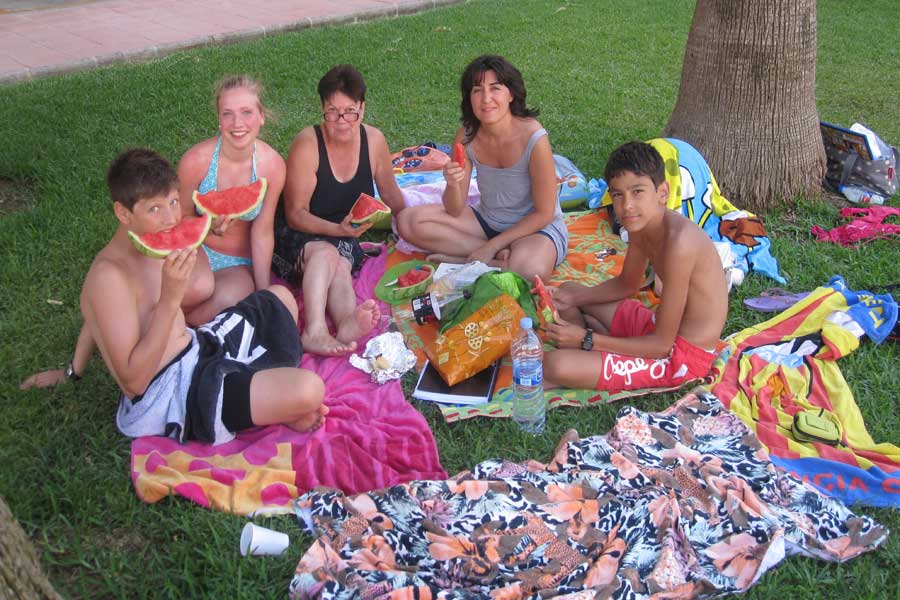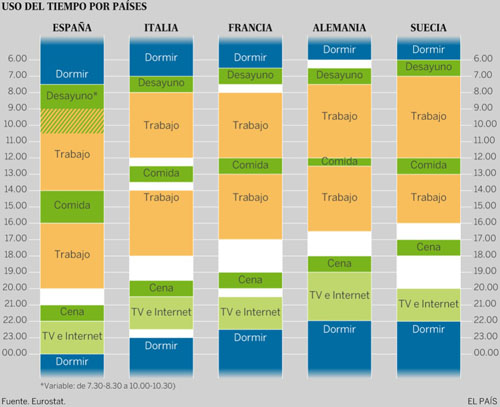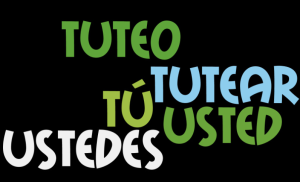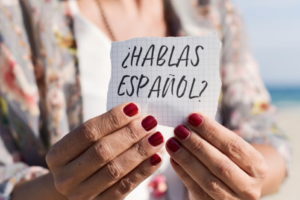
Learn Spanish and stay in a Spanish host family
- Categories TIPS FOR LEARNING SPANISH
- Date 4 August, 2016
An intensive Spanish course in Spain is an ideal way to learn the language. Travelling to Spain envelops you in a unique experience of language immersion and culture. You will hear it everywhere and you are forced to continually practice. Sometimes you end up dreaming in Spanish and at that time, you really will be improving!
If, in addition to a Spanish course, you have decided to follow an immersion program with accommodation in Spanish host family, this effect is doubled: you will practice in class, during school activities, at home with the Spanish family, on the street, … A full immersion in Spanish!
To make your stay in a Spanish family even better, we give you four important keys to know about Spanish families. Of course, not all families are equal or follow the same traditions, each family is unique. Still, we can share with common general features:
1. THE SPANISH TIMES
Before coming to Spain you have to know that the times here are not like your country. The afternoon does not start at 12:00, but rather after lunch, around 16:00 or 17:00.
In the morning, between classes you have to bring a “snack” to school (“almuerzo” in Spanish) because you surely will not eat before 14:00h at the home of your host family. After eating, in some houses, silence will reign if the siesta is common for them. The nap is not as common in Spain as one tends to think, even so, do not be surprised if in your house the family members sleep a while after eating to recharge, especially in summer, since this hour is when it is the hottest.
Then, around 17:00 activity begins again. If you are studying in TLCdénia, you can participate in the activities plan of the school or enjoy the beautiful city of Denia on your own. At this time, the Spanish take another small ‘snack’: merienda. If they are away from home, often they leave for a coffee, a small snack, but dinner does not take place until 21:00 or 22:00. The fact that you have dinner late can be very surprising, but we advise you to wait a bit and eat with your hosts. It is a perfect place to chat with them about your day.
If you like going out at night, keep in mind that in Spain people do not leave until 23:00 -00:00 and most clubs do not get busy until 2:00 am.
Our advice: do not get impatient because everything is done later to what you’re used and enjoy this new experience!

2. FAMILY MEALS
In Spain the time of the family meal is very important, maybe in your country as well. Spanish families usually eat together (wherever possible) because it is a time to talk and have fun while enjoying a good meal.
 Family meals is a very special moment for Spanish host families
Family meals is a very special moment for Spanish host families
Remember some important courtesies: wait until everyone is seated to start eating and don´t get up from the table until everyone is finished. This can vary from home to home, but this is the most common model. You are likely to be offered more food continuously. A Spanish family usually want their guests to finish feeling full.
On Sunday it is also traditional to eat together and also with the extended family: uncles, aunts, cousins, grandparents, etc.
3. GREETINGS IN SPAIN

In Spain when two people meet for the first time, the most common gesture is to give two kisses on the cheek between two men is more common handshakes. The greeting is a gesture of importance. If you go to a public place, the most common is greeted with a “¡Hola!” “¡Buenos días!” Or “¡Buenas tardes! or a simple: “¡Buenas! “. At home remember to say hello when entering and say goodbye when you leave. Even in a block of flats, it is normal to acknowledge your neighbor if you cross paths.
4. FORM OF ADDRESS: “TÚ” OR “USTED”?
 In Spanish there is the pronoun “tú” (singular) and “vosotros” (plural). The formal version of these pronouns is “usted” (singular) and “ustedes” (plural).
In Spanish there is the pronoun “tú” (singular) and “vosotros” (plural). The formal version of these pronouns is “usted” (singular) and “ustedes” (plural).
The pronoun usted / ustedes is used in formal situations, for example to go to the doctor or someone who, because of their status, has some respect: for example a police officer or a judge. We also use it with older people. If you use this pronoun with your father or your host mother, they may ask you to use “tu”, because the “usted” makes them feel older or shows a lack of confidence. To your Spanish teacher you can also use tu because it is a situation of trust.
With these tools, you can now enjoy your intensive Spanish course with accommodation in Spanish host family.
Enjoy your Spanish culture immersion!
You may also like

More About the Spanish Accent

Tips for Fast Progress in Spanish for Beginners

